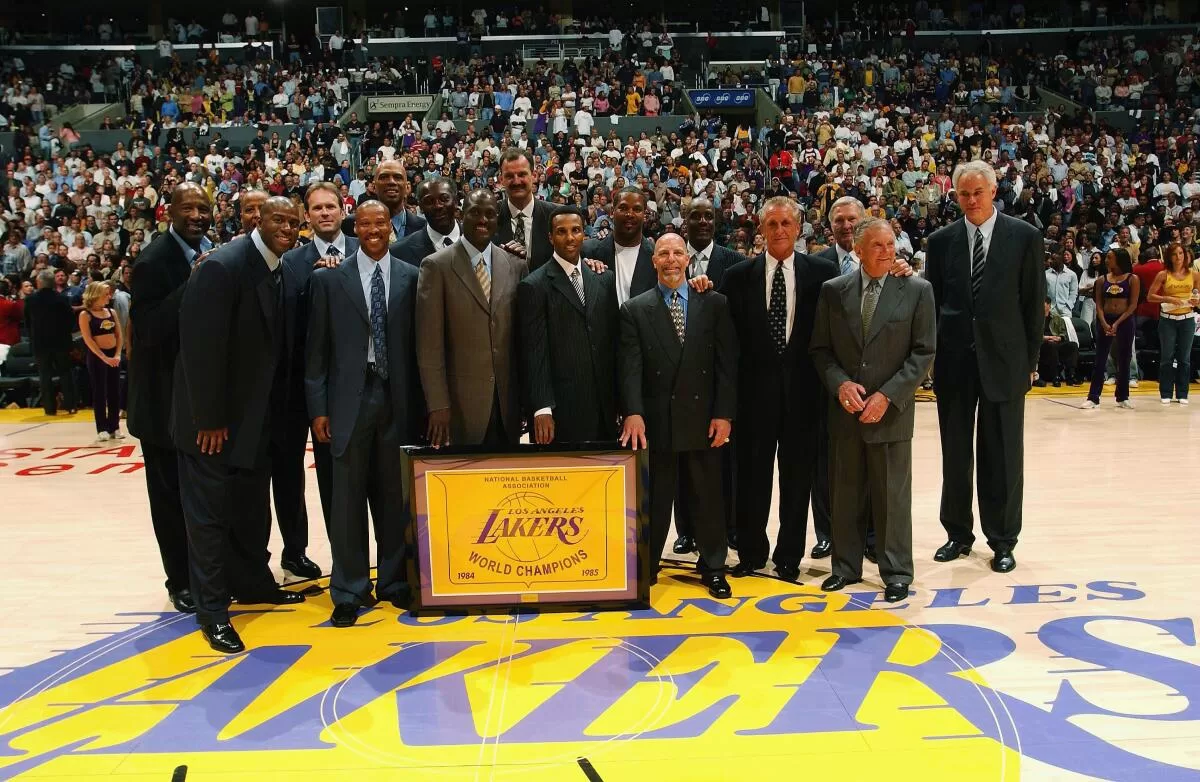The first time he spoke with Jerry West, the NBA legend tried recruiting Rambis to join the Lakers in training camp. But the roster was crowded, his future was unsure and the option didn’t look all that promising.
So he listened, declined and hung up the phone. Why try out and waste time, Rambis thought, when he could just return to his team in Greece and carve out a career in Europe.
As soon as Rambis hung up, he knew what he’d done was totally crazy.
“I just told Jerry West that I wasn’t interested,” Rambis remembered on Wednesday.
Rambis, of course, would relent, join the Lakers and change his entire life by becoming a beloved member of Showtime and a NBA lifer. Following West’s death Wednesday at 86, Rambis remembered the iconic former Lakers star and executive.
“His drive, his competitiveness, his obsession with winning, I mean, you felt that,” Rambis told The Times. “You felt that kind of good competitive pressure that he put on himself and the osmosis, in a lot of ways, of how he carried himself and things that he said. And, you know, the anxiety that he went through watching games and how relieved he was when you won, all of that culminated in helping the Lakers develop this competitive winning culture.”
That culture still exists, West’s mark on basketball in Los Angeles permanently tattooed on the players and people who got to work with him.
When the Lakers acquired Byron Scott from the San Diego Clippers in 1983 for Norm Nixon, it wasn’t a very popular decision.
Nixon had won two NBA championships with the Lakers and he was well liked by his teammates and the press corps that covered the team.
West was the Lakers’ general manager who made the move, thinking a backcourt with Magic Johnson as the point guard and Scott as the shooting guard was the right pair instead of Johnson and Nixon sharing point guard duties.
Scott recalled how one local television sports anchor criticized the deal, saying West “got this wrong and is kind of losing it.”
(Andrew D. Bernstein / NBAE / Getty Images)
Scott watched the anchor’s reaction and thought, “Man.”
West called Scott to his office about a week later to discuss the negative commentary.
West acknowledged the heat faced for making the trade, but was confident everyone would be “eating their words in a few years.”
“He said, ‘… Let me tell you something. We are going to win more championships with you than we would have ever won with Norm,’” Scott recalled.
Scott went on to win three championships with the Lakers during the ’80s, his sweet shooting stroke a big part of Showtime.
“When I left his office that day, all I could think was, ‘I’m never going to let this man down,’” Scott said. “This man believed in me when nobody else did. And it’s true.
“So, like I told people for years. I got two dads — my dad and my basketball dad. Jerry is my basketball dad. So, it was a tough day this morning.”
Michael Cooper attended Pasadena High and Pasadena City College before he went to New Mexico, so he knew about the greatness of Jerry West as a player.
Cooper was a part of the Showtime Lakers that won those five NBA championships in the ’80s. When he was selected to be part of the Naismith Memorial Basketball Hall of Fame 2024 class, Cooper was overjoyed because he was going in with West, the man who drafted him as the 60th overall pick in the third round of the 1978 draft and the icon who was going in the Hall of Fame for the third time — as a player, a member of the 1960 U.S. Olympic basketball team and as a contributor.
“And that’s the thing that hurts,” Cooper said. “When I found out [Wednesday], man, I started crying, because I was going to really relish that. Like I said, our stuff goes back to 1973. That man has been in my life all these years. … Jerry was always there, man, always there. He would be like, ‘Michael, you gotta stop this craziness.’ He was just always there helping me along the path. He never quit on me.”
Magic Johnson, one of the Showtime era’s biggest stars, enjoyed a lifelong bond with Jerry West.
As a 20-year-old rookie, Johnson said, he was in awe that West would pull him aside once a week to critique his game.
They would sit in seats not far from the famed Forum Club, just the two of them talking about Johnson’s previous three or four games.
“He would just give notes,” Johnson said. “He’d say, ‘OK, you need to do this, or you are short on your shots.’ Whatever it was. ‘If you probably would have made this decision, it probably wouldn’t have been a turnover. You had too many turnovers.’
“So, he was just helping me out. He loved it, because it was his idea. ‘Let’s meet. I just want to help you out.’ I loved it because I’m getting this knowledge from the great Jerry West. So, I needed that.”
